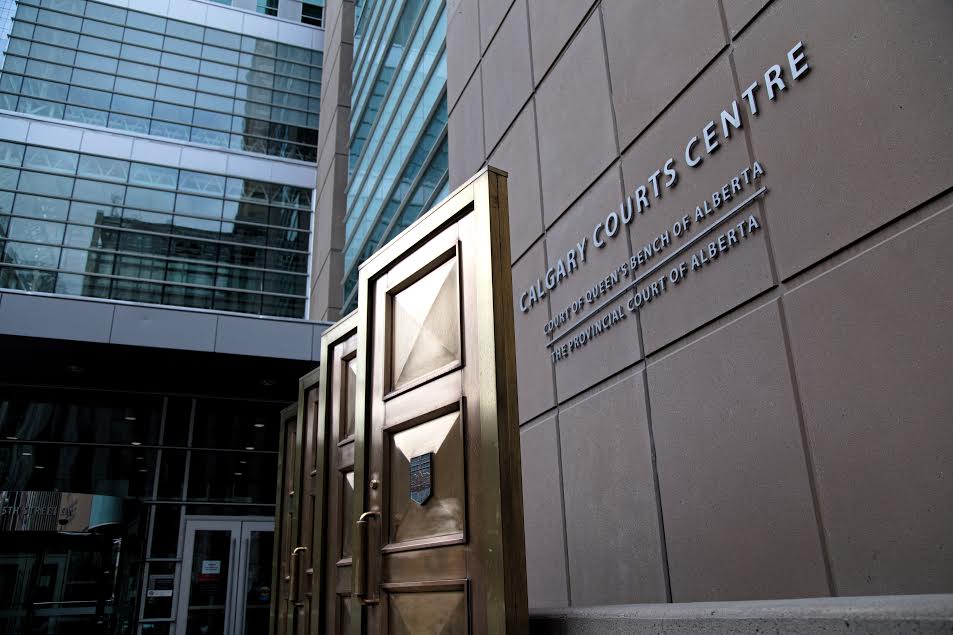
Ian Holloway, Dean of the Faculty of Law, talks ripple effects of COVID-19
By Lauren Peebles, December 10 2020—
The legal profession is at a crossroads. COVID-19 has exacerbated many inequities in the judicial system and will likely change how the next generation of lawyers approach novel issues.
The Dean of the Faculty of Law, Ian Holloway, sat down and discussed the challenges facing access to justice and the future of the legal profession.
Domestic disturbances, wellness checks and emotional crises reports to police are up over 10 per cent in Canada, compared to this time last year. In some vulnerable communities, that statistic rises to 20 per cent. Does the legal profession have a responsibility to the most vulnerable who are even more hindered in seeking legal help during a pandemic?
Holloway weighed in on this issue. He expressed that it is the responsibility of the legal profession to be “good citizens” first. As a profession, the legal community exists to serve the needs of the people. However, accessing legal aid and resources has been incredibly difficult during COVID-19. Calgary has seen a drop off in those able to access legal aid, but has seen an increase in people seeking subsidized legal assistance. As socioeconomic gaps widen, these issues may only become more prevalent.
However, legal professionals are struggling too. Beyond the decline of billable work, late payments and decreases in business transactions, the legal profession is experiencing substantial declines in mental health. Prior to the pandemic, a University of Saskatchewan study found that “20-40 per cent of law students have clinical depression by the time they graduate”. This statistic is also likely on the rise. A survey of university students found near 71 percent of respondents felt a marked increase in anxiety during COVID-19.
Holloway commented on this increased prevalence of mental illness, especially among the legal profession. He remarked that law schools tend to admit certain personalities. One of the advantages to UCalgary’s approach to student admissions is choosing people, and not just numbers, that are “equipped to deal with the rigors of a demanding legal profession.”
However, he shared that online school has made it more difficult to “detect distress signals” and mental health declines in students. Students are more likely to get left behind in the void of online coursework. He also noted that people are “social animals,” and are not meant to go long stretches with reduced human contact. The consequences of these reduced interactions may not be seen for years to come.
To combat this, the faculty is using one of its key and defining features to make school accessible to its students. The UCalgary Faculty of Law purports itself to be the most innovative law school in Canada. Holloway elaborated on how this translated to the faculty’s approach to COVID-19. Back in early 2020, the faculty began to make contingency plans for a potential lockdown. When the time came, the UCalgary Faculty of Law made the online transition for learning in just three hours. Despite this feat, Holloway admitted that COVID-19 has not been without its difficulties.
Holloway acknowledges that the Faculty of Law has been in “survival mode” since going online. Salaries posed a huge issue for the faculty this year — 90 per cent of this year’s budget went to staffing costs. Balancing student affairs and salaries proved to be difficult. The cost of delivering online school is the same as it was last year. However, Holloway indicated that everything possible was done this year to help law students be successful in their careers. While other law schools made cuts to their Career Resources offices, UCalgary did not.
This risky move seems to have paid off. Despite less student jobs available this year, UCalgary students made up a bigger percentage of available placements than they did last year. In addition, more second-year law students were placed in 2020 than in 2019. Holloway credits the work ethic of students and the exceptional contributions made by the faculty’s Career Resources office during this time.
Looking forward, the legal community needs to adapt to a changing landscape. Holloway expressed that moving to more online formats highlights changes that were already happening globally. In 2015, he wrote an article for Canadian Lawyer where he discussed this:
“As I say to my colleagues all the time, our duty is to prepare students for the profession they’re joining, not the one we joined. And no question, their profession is going to look different from ours.”
Holloway expressed that the UCalgary Faculty of Law is always preparing for “what is coming down the pipeline.” COVID-19 has not changed this forward looking view. He sees UCalgary preparing students to become the “broad minded specialists” that will likely be required of them as they advance in their careers.
The themes in Holloway’s 2015 article are still applicable today. How does one prepare for this uncertain and volatile world that is looming? Holloway has the following advice: “volunteer, speak up when you see injustices”, and most importantly, “be a good citizen”.
